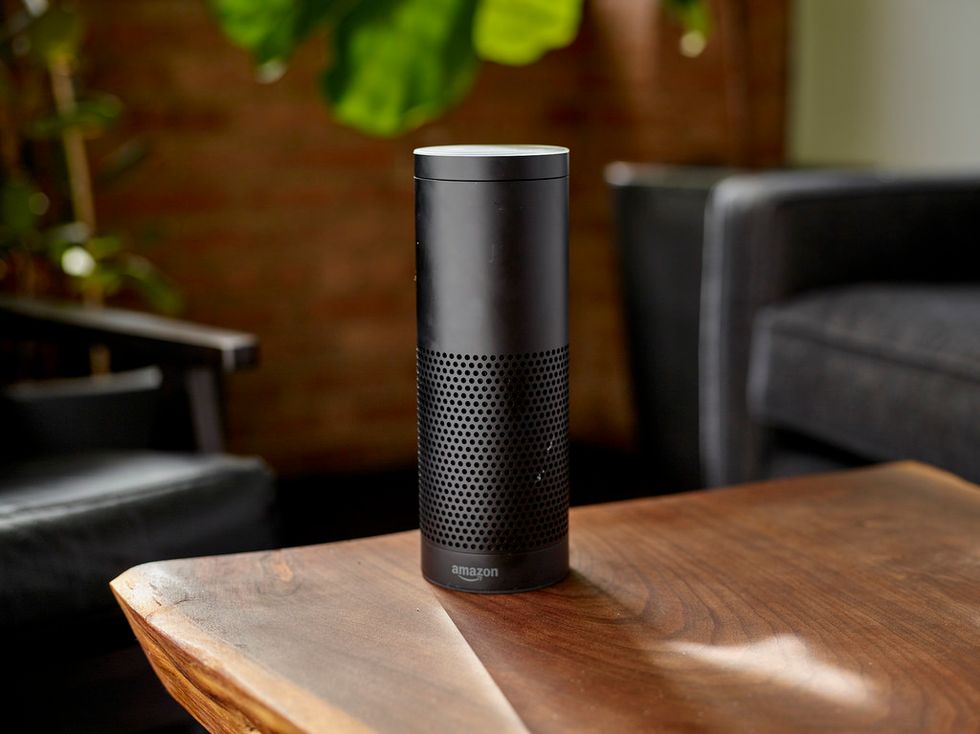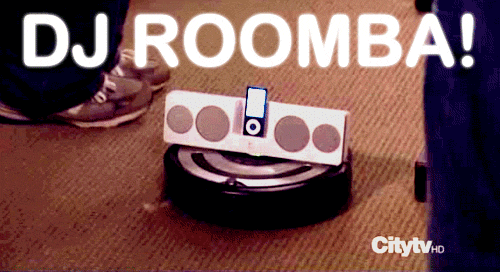In between his short bursts of general oddball behavior and his promises of equally strange tech (the man said future Tesla models might "hop in short bursts"), billionaire Elon Musk has continued to push the notion that certain technological advancements might pose a threat to human existence in the not-so-distant future.
I'm one to agree, especially considering the number of times I've been bugged by online ads for products related to a private conversation I had right by my laptop. In a talk between me and my sister, the only third party in the room that might possibly be "listening in" is my computer's mic, giving credence to the idea that the most mundane of devices, when improved by the superpowers of Internet connectivity, might come to overpower their human operators. When that happens, I'm watching out for a few candidates in particular.
5. Alexa

That's right. Alexa might behave submissively with her factory settings, but the pleasant female voice you hear when asking questions and trying to have her perform menial tasks could quickly turn sinister. Truth be told, I've only heard of the Amazon Echo serving more as a novelty than an actually helpful system. The dangers of Alexa and similar cloud-based voice services, however, are already present regardless of functionality.
For one, Alexa's constant availability is a double-edged sword: she's always on, therefore she's always listening. There's no escaping the ears of this beast, which has already come to creep users out by starting to laugh without being prompted. There's even a Times story about a married couple whose Amazon Echo recorded their entire conversation and sent it to the husband's coworker.
4. Smartphones

Smartphones make just about everything easier than they were for the last generation. In truth, however, the rise of wireless telephones also means the rise of wireless wiretapping. The notion of such technology is as powerful as it is paradoxical, practically implying that nothing is safe from whoever might try to surpass your privacy.
With every characteristic that keeps teenagers like yours truly attached to these devices comes a frightening extrapolation. You can carry around your smartphone wherever you go, effectively collecting a record of your location at all times. You can use it to communicate with people around the world, thereby recording every interaction you have. You can use a smartphone for pretty much anything, but that means pretty much nothing is off limits.
3. Smart Cars

Picture this: in 2048, you're driving in your luxury Tesla (maybe flying in it if Elon Musk's word is good), but on certain rough days like today, you're compelled to let go of the wheel and hand control over to the smart car's autopilot system. After all, it makes sense for a computer's driving to be better than yours. A machine doesn't get tired or distracted, nor is it compelled to text while driving or sip a bottle of liquor.
Now imagine realizing the car's autopilot isn't taking you where you thought to go; in fact, you've passed your destination by a mile or so and have no idea where the car's taking you. At this point, you think to regain control of the steering wheel and push buttons accordingly, but the car thinks back: "Input not received."
Then you might conspire to jump from your vehicle, but the car's safety mechanisms would never allow that. Nor will it allow you to unbuckle your seatbelt while you're in motion. You're strapped in for a frightening ride.
This nightmare scenario is more visceral than we would like to believe. The very idea of smart cars hands intelligence, and therefore control, to the vehicle, and it is thus capable of relinquishing that control from the driver at the most inopportune of moments.
2. Streaming Services And Websites

Just about every major aspect of entertainment has been condensed into a subscription service, with Netflix and Spotify ruling their respective markets. Spotify specifically has come under fire quite often for apparently underpaying its artists for their work when, in reality, the service poses a larger threat to you and me, the users.
Spotify employs the very type of artificial intelligence Elon Musk warns about, artificial intelligence, to gather data about your music preferences and compile playlists of suggested tracks. Netflix and YouTube do the same, filtering what you're suggested to watch based on what you're predisposed to like, ultimately hoping to keep you on the site for as long as possible.
That rabbit hole of random videos that might keep you on YouTube's website for hours at a time is actually not random at all, but instead, it's a calculated effort to keep you glued to the screen.
The next time you find yourself at the whim of a streaming site's recommendations, remember that you're letting AI take the reigns on your pastime. Considering that intelligence controls precisely what we see and when we see it, it's hard not to imagine these websites taking advantage of the confidence we have in them.
1. Roomba

The Roomba has come a long way since I last laughed at its clunky movement as a young kid, back when the first sentient machine to come to my mind was the adorable Wall-E. In 2018, that honor goes to the Roomba, crazy as that sounds. Nowadays, it's still vacuuming our floors, but vastly improved sensors now allow it to better avoid the house's furniture and other obstructions.
Therein lies the terrifying truth about everyone's favorite cleaning agent, that the Roomba collects data about the layout of your house as it cleans it. Apparently, mapping a house's layout could provide useful information for advertisers looking to cater ads to what your home "needs." Though Roomba's parent company iRobot has denied claims that it will such data to corporations, the mere premise of a device that maps your home is enough to inspire a "Black Mirror" episode and a half.



















